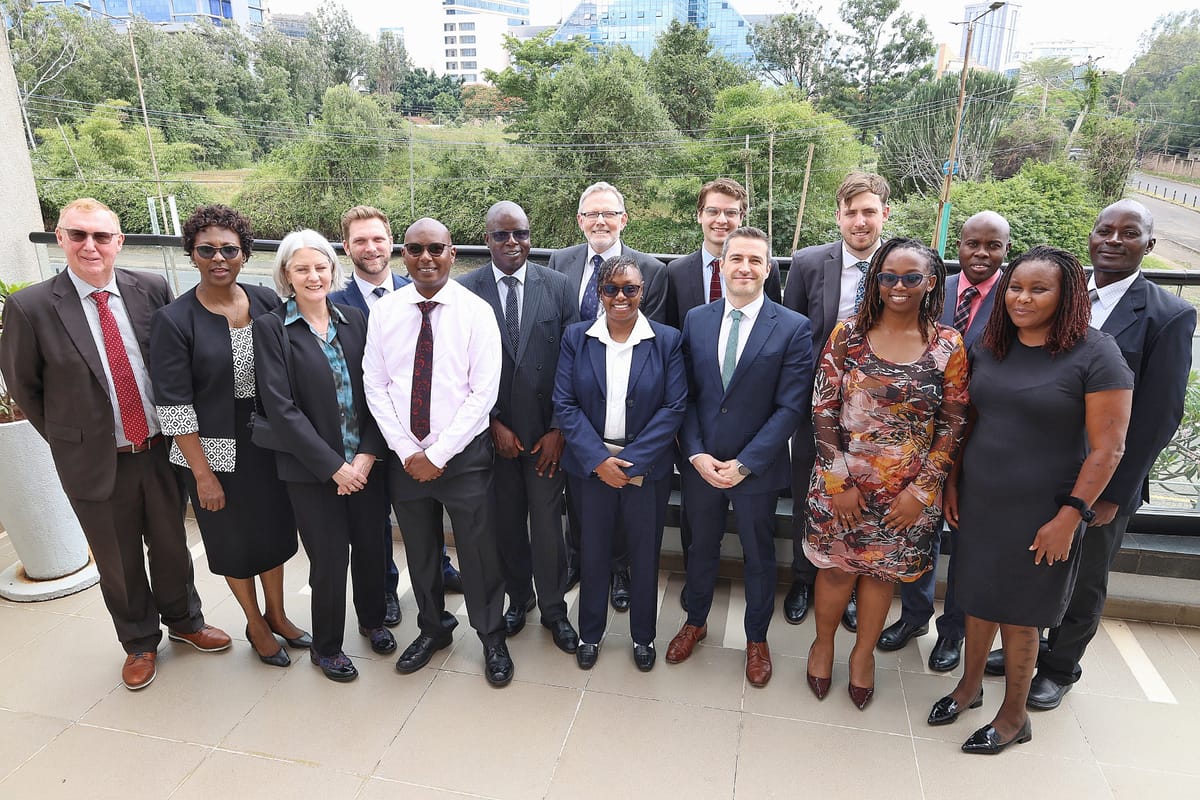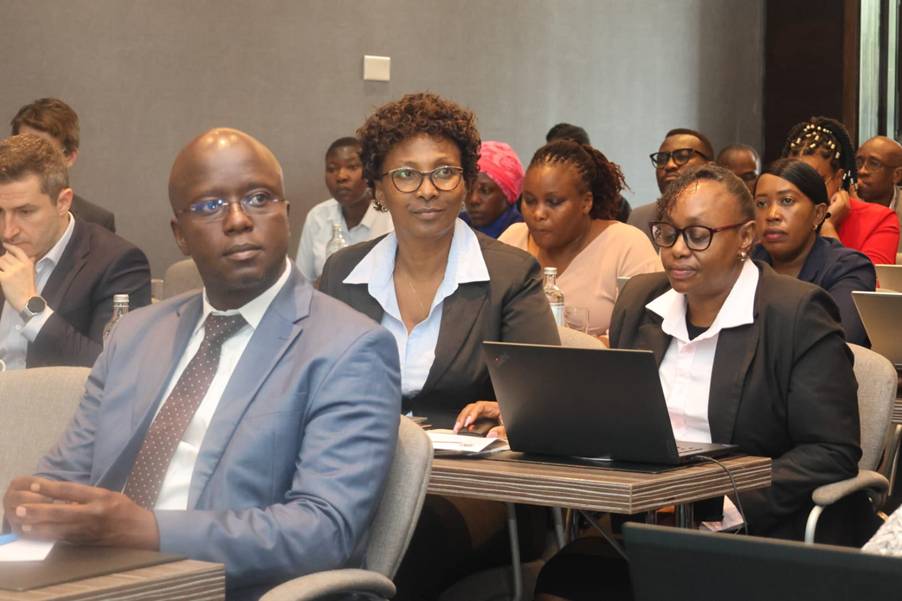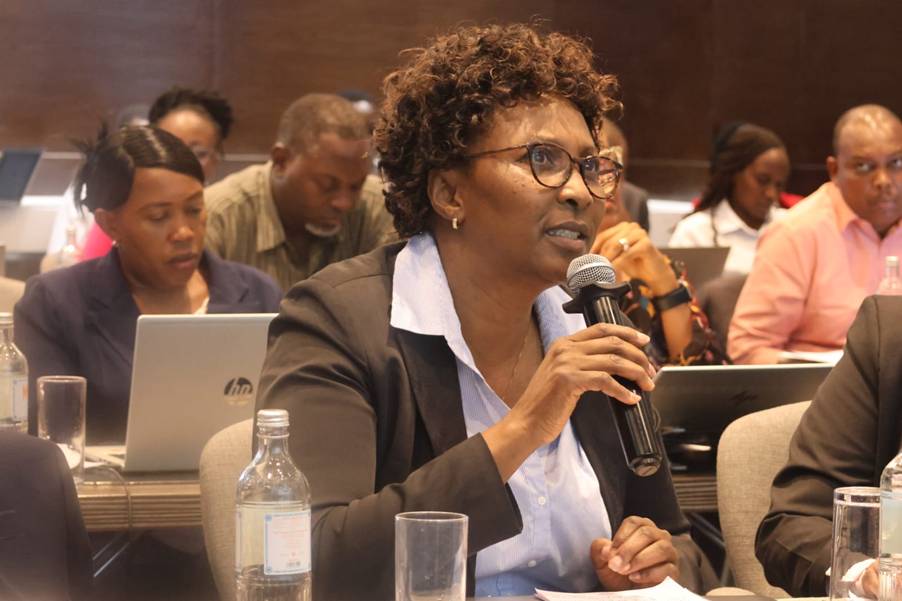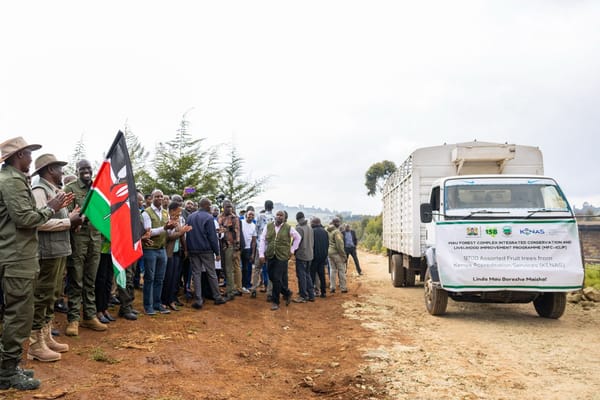Accreditation: The Cornerstone of Kenya’s Regulatory and Economic Advancement

A Future Anchored in Trust and Growth
Kenya stands at a critical juncture in its economic development. With businesses striving to expand, attract investment, and compete globally, the need for a robust and transparent regulatory environment has never been more urgent. At the heart of this transformation is accreditation, a powerful tool that ensures compliance, builds investor confidence, and opens doors to international markets.
This was the key takeaway from the UK-Kenya workshop on regulatory development tools for policymaking. The event brought together key stakeholders to explore how embedding accreditation into Kenya’s policy frameworks can drive economic growth, improve business efficiency, and enhance consumer trust.

KENAS CEO, Dr Walter Ongeti during the KENYA UK Workshop on Development of Regulatory Tools for Policy Making
Breaking Down Regulatory Barriers
Regulatory inefficiencies present a major hurdle for both Kenyan and British businesses operating in Kenya. These challenges include:
✔ Cumbersome Approval Processes – Lengthy bureaucratic procedures delay licenses, permits, and certifications, slowing business operations.
✔ Inconsistent Enforcement – Regulatory bodies apply rules variably, creating uncertainty and additional compliance costs.
✔ Limited Mutual Recognition – Certifications accepted in one country may not be recognized in another, hindering trade and investment.
These inefficiencies not only discourage investment but also stifle job creation and economic expansion. The workshop emphasized that a streamlined, accreditation-driven regulatory framework is essential for reducing these barriers and fostering a more predictable business environment.
Mr. Richlove Mensah, Director of Trade and Investment for Kenya and Regional Director for East Africa, emphasized that while no regulatory environment is ever flawless, Kenya has a significant opportunity to unlock its economic potential. He called for swift reforms to the regulatory framework to stimulate job creation and economic growth—ultimately increasing household incomes. He added that the UK is committed to leveraging a strong year of trade and deepening this timely partnership with Kenya. By listening to the challenges on the ground and applying the UK’s regulatory expertise, she affirmed that the UK aims to be a reliable, long-term development partner—"we achieve more together."
Ms. Esther Ngari, Managing Director of the Kenya Bureau of Standards (KEBS), reiterated KEBS's dedication to promoting Good Regulatory Practices (GRP). She underscored the importance of a transparent, consistent, and evidence-based regulatory approach to support trade, protect consumers, and attract investment. She stressed that tools such as Regulatory Impact Assessments, stakeholder consultations, and post-implementation reviews are crucial in creating a more predictable and business-friendly regulatory environment.
Mr. Rob Bettinson, International Director at UKAS, expressed appreciation for participating in the Nairobi workshop. He noted that globally recognized accredited testing and certification can help businesses access multiple markets by removing technical trade barriers. Bettinson emphasized that through shared learning and the exchange of best practices in standards and accreditation, both the UK and Kenya can enhance regulatory quality and stimulate economic development.
Mr. Daniel Mansfield, Head of Policy Engagement at the British Standards Institution (BSI), shared BSI’s enthusiasm in contributing to the dialogue on international standards in policy development. He explained that promoting understanding of how standards and quality infrastructure support policymaking can significantly improve the business climate, expand trade, and drive growth. Mansfield added that BSI looks forward to continued collaboration, particularly through the Standards Partnership and the Commonwealth Standards Network, both of which offer great potential to generate positive outcomes for consumers, businesses, and governments globally.
Real-World Impact: Accreditation in Action
Kenya’s regulatory bodies are already embedding accreditation into their operations, demonstrating its tangible benefits across various sectors:
- Transport & Infrastructure – The National Transport and Safety Authority (NTSA) mandates accreditation for conformity assessments under KS 372:2019 to ensure safe bus body fabrication. The Kenya National Highways Authority (KeNHA) requires accreditation for inspection bodies conducting axle load inspections to protect road infrastructure.
- Energy & Petroleum – The Energy and Petroleum Regulatory Authority (EPRA) ensures that petroleum road tankers are inspected by accredited bodies, reinforcing safety in fuel transportation.
- Standardization & Testing – The Kenya Bureau of Standards (KEBS) is now required, under the Business Laws Amendment Act (2024), to have its designated laboratories accredited by KENAS.
- Environmental & Nuclear Oversight – The National Environment Management Authority (NEMA) will designate accredited reference laboratories for environmental testing, while the Nuclear Regulation Act (2019) mandates accreditation for testing uranium, thorium, and other radioactive elements.
These cases highlight how accreditation is strengthening regulatory reliability, ensuring businesses operate within clear, predictable, and internationally aligned standards.
Institutionalizing Accreditation for Sustainable Growth
To fully capitalize on accreditation, Kenya must integrate it into policymaking as a fundamental regulatory pillar. This approach will:
✔ Streamline Business Operations – Reducing bureaucracy and ensuring smoother regulatory compliance. ✔ Attract Investment – A stable, transparent regulatory framework reassures investors, encouraging long-term economic commitments. ✔ Enhance Global Competitiveness – Accredited businesses gain easier access to international markets, meeting global trade and compliance standards.
This vision requires close collaboration between government agencies, accreditation bodies, private sector stakeholders, and international partners. By aligning policies with global best practices, Kenya can ensure a regulatory system that supports business growth while safeguarding public interest and environmental sustainability.

Ms. Lucy Namu, Chief Manager, Laboratories contributing towards the discussion during the workshop
The Path Forward: Accreditation as Kenya’s Competitive Edge
The UK-Kenya workshop underscored an undeniable reality: Accreditation is the backbone of a thriving, competitive economy. By embedding it into policy, Kenya is poised to:
✅ Unlock new investment opportunities ✅ Foster innovation across industries ✅ Build a regulatory framework that promotes trust, efficiency, and international recognition
Kenya’s future is one where businesses thrive, trade flows seamlessly, and consumers trust the products and services they use. Through strategic collaboration and policy-driven accreditation, the nation is set to become a regional and global leader in quality assurance, regulatory excellence, and economic resilience.



